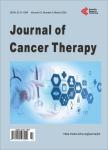Bevacizumab Related Hypertension and Reversible Posterior Leukoencephalopathy Syndrome in Gynecologic Malignancies: A case Control Study
Bevacizumab Related Hypertension and Reversible Posterior Leukoencephalopathy Syndrome in Gynecologic Malignancies: A case Control Study作者机构:Department of Obstetrics Gynecology and Reproductive Sciences Yale University School of Medicine New Haven USA.
出 版 物:《Journal of Cancer Therapy》 (癌症治疗(英文))
年 卷 期:2011年第2卷第2期
页 面:217-223页
学科分类:1002[医学-临床医学] 100214[医学-肿瘤学] 10[医学]
主 题:Ovarian Cancer Bevacizumab Hypertension Posterior Reversible Leukoencephalopathy
摘 要:Background: Bevacizumab is increasingly being used in the treatment of gynecologic malignancies, but has significant side-effects including hypertension and reversible posterior leukoencephalopathy (RPLS), which must be recognized by the gynecologic oncologist. Methods: A 26-month institutional retrospective review of bevacizumab in the treatment of gynecologic malignancies. Patients were grouped according to whether they had bevacizumab-related hypertension (defined as at least a grade one hypertensive toxicity) or not. There were no differences in patient demographics between the groups. Risk factors for developing bevacizumab-related hypertension were assessed using t-tests, Wilcoxon rank sum test and Fisher’s exact test. Results: Our group has treated 45 patients with bevacizumab. Fifteen (33%) patients had a pre-existing diagnosis of hypertension, 12 (80%) of whom had at least one elevated blood pressure during treatment. The 30 (67%) patients who did not have a pre-existing diagnosis of hypertension still had a high incidence of bevacizumab-related elevated blood pressure (14, 47%). The majority of patients (26, 58%) had at least one therapy cycle complicated by hypertension. Patients who experienced bevacizumab-related hypertension were significantly more likely than not to have a history of hypertension (odds ratio of 4.6, 95% CI 1.1-19.6). There was a 4.4% incidence of reversible posterior leukoencephalopathy. Patients with age equal to or greater than 75 years, stage IV disease, and creatinine elevations greater than or equal to 1.4 mg/dL were significantly more likely to develop bevacizumab-related hypertension. Other factors such as numbers of prior chemotherapies, cycles of bevacizumab, BMI, cancer site, and histology were not significantly associated with bevacizumab-related hypertension. Conclusions: Hypertension is a problem for patients on bevacizumab whether or not they have a pre-existing diagnosis. However, those with a history of hypertension we



